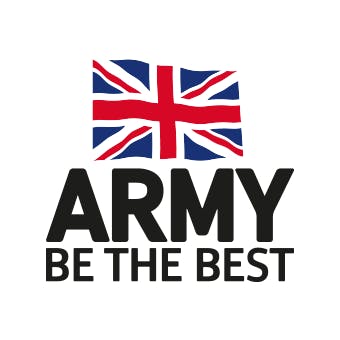Armed forces technical officer
Technical officers in the armed forces are responsible for the maintenance and serviceability of crafts, vehicles and weapons
Leading a team of specialists, you'll ensure that ships, aircraft and land vehicles, as well as their associated weapons systems, support equipment and communications systems, are all maintained and ready for use. You'll manage and direct your team to respond accordingly when circumstances demand action to best utilise their skills and competence.
You'll also act as a project manager on a base or construction site, or in research and the development of new equipment and systems.
Responsibilities
As a technical officer your role will include both management responsibility and a considerable extension of your technical experience to identify, investigate and solve problems. Sometimes, this experience will involve advanced development and applications, such as equipment development with a manufacturer.
In the field, this involves sorting out basic problems, for example, providing water supplies, building bridges or even setting up a refugee camp and providing all services. In combat, it could be constructing a helicopter pad, destroying a bridge or clearing a minefield.
The activities you undertake will revolve around the command and management of a team of specialists, who will include artisan tradespeople, technicians, engineers and other professionals.
You'll often need to:
- assess situations and identify technical problems, investigating the causes of defects and overseeing repairs
- prepare new or modify existing operational strategies and plans
- allocate equipment, personnel and resources effectively to solve problems and achieve missions
- keep ships, aircraft, vehicles and/or other equipment operational, as well as infrastructure and lines of communication
- find 'best possible' solutions quickly
- manage personnel, equipment and resources and act as a project, production or site manager
- direct technical personnel, both service and civilian, to operate, maintain and repair all equipment
- assess priorities, plans and maintenance routines, and liaise with external repair facilities
- teach, instruct and demonstrate to staff, and assess the effectiveness of their training
- carry out essential administration, including records, budgets and accounts
- act as a consultant for all engineering matters, including fault diagnosis and operational status
- cooperate with designers and manufacturers on the research and development of new equipment and systems
- keep up to date in your specialist area and in developments of the whole of your professional technical field
- take responsibility for the welfare, discipline, morale and career development of the team of technicians you manage, including training and developing staff, and preparing them for promotion
- communicate effectively with direct reports, colleagues with other roles and responsibilities, and professional groups, through briefings, technical and operational reports and presentations.
Salary
- The starting salary for graduate army officer recruits is £33,183, rising to £39,671 (second lieutenant) upon successful completion of initial officer training. As a lieutenant, you will earn £41,026.
- Officers in the Royal Air Force start on £33,100, rising to £50,500 after three years' service and promotion to the rank of flight lieutenant.
- Royal Navy officers start on £33,000, rising to £38,700 after a year of service. This rises to £47,500 when you are promoted to lieutenant (three-and-a-half years after signing up).
- Salaries at senior levels vary according to rank, experience and amount of time served. Some specialist roles pay higher than the standard rate of pay.
The armed forces also offer benefits such as six weeks' paid holiday a year, a non-contributory pension scheme, free health and dental care, subsidised travel, food and accommodation, and on-site fitness facilities. Find out more from Discover my Benefits.
Salary data from the Army, Royal Air Force (RAF) and Royal Navy. Figures are intended as a guide only.
Working hours
Depending on your role, you may need to work shifts. When on operations, officers can work long hours in a challenging and often stressful and dangerous environment.
It may be possible to work part time temporarily and/or restrict your separation from your home base (from three months to three years) under the armed forces' Flexible Service arrangement.
Part-time roles also exist in the Army Reserve, the RAF Reserves and the Royal Naval Reserves.
What to expect
- You'll work in UK bases and stations where security restrictions operate, but there's also the possibility of prolonged periods abroad on overseas bases and on exercises and operations all over the world (both on land and onboard navy vessels).
- Expect to rotate jobs and relocate every two to three years. The extent of relocation, travel and family separation will depend upon the service and posting, but support services and social and recreational facilities are good.
- The armed services are equal opportunities employers and promote equality, diversity and inclusion. All posts are equally open to men and women.
- As a technical officer you'll be given a lot of responsibility early in your career. This will include management responsibility but also a considerable extension of your professional experience in a specialist field. The work is interesting and varied but can be difficult, challenging and dangerous at times.
Qualifications
All three armed services recruit graduates as officers and provide initial officer training and a continuation of technical and professional training. However, you don't need a degree for all roles.
The academic requirements for entry into technical and engineering commissions vary between the forces and even between different branches. For example:
- For the RAF role of aerosystems engineer officer, you should have an accredited undergraduate or postgraduate degree in an appropriate engineering or scientific subject, although other degrees might be accepted.
- The Royal Navy requires graduates to have a degree in science, technology, engineering or mathematics for its air engineer officer and weapon engineer officer roles.
- You don't need a degree to become an army engineer troop officer in the Royal Engineers or a royal signal officer in the Royal Signals, but you will need GCSEs and A-levels (or equivalent).
- Graduates who want to become an engineering officer in the army's Royal Electrical and Mechanical Engineers (REME) will usually need a degree in a subject such as engineering, maths, science or computer systems, although others may be considered. If you don't have a degree, you must be willing to study for an in-service degree in a technical subject.
In each branch, there are also non-graduate technician roles available. If you're unsure as to whether your qualifications meet the requirements of the role, you should seek advice from the local armed forces careers office of the service you wish to join.
Generally, you must be a UK, Commonwealth or Irish citizen and have been resident in the UK or Ireland for five years prior to entry to the armed forces. However, requirements vary slightly between the different branches and roles, so you should check before applying. Age limits also apply.
All three services offer student bursaries or sponsorship, but amounts vary according to the subject you are studying and the needs of the service. University Service Units also pay students who join and take part in activities.
The selection process varies for each service, and high standards are required at the selection board and throughout basic training. Whichever service you apply to join, selection is likely to include:
- an application form
- an initial interview to find out if a life in the armed services would suit you
- medical assessment
- aptitude tests
- fitness test
- an interview/selection board.
At the interview/selection board, recruiters will be assessing your leadership potential and motivation, as well as your teamwork, communication, planning and problem-solving skills.
Make sure that you have researched the branch of the armed forces you are applying to and understand which part you want to work in. You must also be aware of current affairs, particularly in relation to defence and society.
Check individual armed forces websites for further details on applying and entry requirements. Information is also available from university liaison officers (ULOs) and local armed forces careers offices.
It's recommended that you start to build up fitness levels before you commence basic training, as this will enable you to feel more confident and enjoy the training more.
Advertisement
Skills
You'll need to have:
- excellent communication and interpersonal skills
- the ability to lead and motivate as all officers are expected to be leaders and managers
- the ability to work effectively as a member of a team
- an enquiring mind
- problem-solving and analytical skills
- the ability to remain calm under pressure
- excellent organisation and administration skills
- the ability to think clearly and to make decisions in high-pressure and sometimes dangerous situations
- integrity, self-motivation and flexibility
- the ability to learn quickly
- attention to detail
- the ability to work on multiple tasks at the same time
- a sense of adventure
- a high level of physical and mental fitness.
For most branches of the armed forces, there are also medical and eyesight requirements.
Work experience
Pre-entry work experience is not needed, but some training can be helpful with cadet and/or reserve forces, as well as:
- University Air Squadrons (UAS)
- University Officers' Training Corps (UOTC)
- University Royal Naval Units (URNUs).
It's also possible to do a 12-month army officer internship through the Army Internship Programme. You can do this either during or after university.
University Liaison Officers (ULOs) can give you up-to-date information, and offer advice on vacation training, cadetships and familiarisation visits.
Find out more about the different kinds of work experience and internships that are available.
Advertisement
Employers
There are three employers within the armed forces:
- British Army
- RAF
- Royal Navy (including the Royal Marines).
The British Armed Forces are managed by the Defence Council of the Ministry of Defence (MoD). The purposes of each service are to:
- protect the United Kingdom and its dependent territories
- fight the nation's enemies
- prevent conflict
- deliver emergency humanitarian relief.
Much of the time, the armed forces achieve these aims through membership of alliances, particularly the North Atlantic Treaty Organisation (NATO). However, unilateral responsibilities may mean that they act alone at times and therefore need to be equipped and trained for all aspects of modern warfare.
The UK's membership of the United Nations (UN), and its permanent place on the Security Council, may also call for the use of armed force in defence of international security or in support of humanitarian and peacekeeping initiatives.
In addition, the forces have an important diplomatic function in representing Britain overseas with goodwill visits, and in providing training for other countries' armed forces, both in the UK and abroad.
An officer's appointment in one of the services of the armed forces might involve working with the other services, the UN or NATO. Officers might also work at MoD headquarters.
Look for job vacancies at:
You can also enquire at local armed forces recruitment offices or with ULOs for opportunities.
Professional development
Each of the armed services provides initial officer training (IOT) followed by specialist professional or technical training.
The IOT training you'll receive in the armed forces includes military, physical and academic training and is designed to build your leadership skills. You'll be taught about issues such as military organisation, defence issues, current affairs and management skills, and will develop skills in strategy, negotiation, communication and decision-making.
- Army officers begin with a commissioning course at the Royal Military Academy, Sandhurst, which lasts 42 weeks.
- In the RAF, IOT lasts 24 weeks and takes place at RAF College Cranwell, Lincolnshire.
- In the Royal Navy, IOT lasts 30 weeks and takes place at Britannia Royal Naval College, Dartmouth.
- If you want to be a Royal Marine, you will need to complete 32 weeks of IOT at the Commando Training Centre Royal Marines (CTCRM), Lympstone.
After initial officer training, you'll be posted to your chosen regiment or corps, to a ship for fleet training, or to a squadron or station respectively, where you'll undertake specialist training in the detailed skills and particular knowledge you'll need before assuming your first command.
Continuing professional development (CPD) and training are features of a forces career, with opportunities to gain qualifications and professional accreditation with civilian professional bodies. Engineer officers, for example, will be supported to gain chartered engineer status.
You could also take a Masters degree in engineering and management, for example, or a more specialist area such as guided weapons systems or cyber defence. To help develop your leadership skills you could take a Level 7 Diploma in Strategic Management and Leadership Practice or a qualification in project management, such as PRINCE2 Practitioner certification.
Career prospects
There are great opportunities for advancement as a technical officer in the armed forces. You'll have a high level of responsibility early on in your career and will have the opportunity to continue developing your skills as you progress.
After initial officer training, you'll be posted to your chosen regiment or corps. This will be to a ship, squadron or station where you'll undertake specialist command training before assuming your first command.
For all armed services, promotion is typically into increasingly senior staff posts. Advancement involves increased responsibility and may lead to a command and staff training course at the Joint Services Command and Staff College at Shrivenham, as preparation for a senior command or managerial appointment.
It's usual, as your career as an officer progresses, to attain academic qualifications and professional accreditation with civilian professional bodies. There are opportunities to become a chartered engineer, for example, or to work alongside industry partners on the development of new equipment.
Upon retirement from the armed forces, there are opportunities to work in management or consultancy or to take on specialist roles in your area of expertise.
Alternative careers
Related jobs and courses




graduate job
Physics Teacher Training Scholarships
- The Institute of Physics
- £29,501-£32,000
- Various locations


